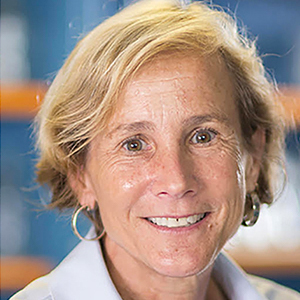
The era of “smart” organelles
Organelles are the fundamental units of cellular organization, and our understanding of their roles in cell physiology has evolved dramatically since they first were described in the early 20th century. Though organelles originally were thought of as simple compartments for biochemical reactions and confined to eukaryotes, new studies have revealed “smart” roles for them in fine-tuning metabolism as well as serving as platforms coordinating signaling and quality-control pathways in both bacteria and eukaryotes.
Recent work illuminates the organizational principles governing how organelles cleverly coordinate cell quality control. These reveal how organelles create microenvironments for metabolic pathways, how they facilitate interorganelle communication to sense and respond to specific cues, and how the phase properties of lipids and proteins equip organelles to protect cells from stress and maintain organismal homeostasis.
Our symposia at the American Society for Biochemistry and Molecular Biology’s annual meeting, Discover BMB, in Seattle in March illustrate these themes and feature work in an array of fields, including prokaryotic and eukaryotic cell biology, cancer biology, and phase separation biophysics.
Just like in the song “Whatever It Takes” by Imagine Dragons, organelles are equipped to do whatever is necessary for cells to adapt and survive the ever-present challenges of life.
Keywords: Bacterial microcompartments, interorganelle communication, protein and lipid phase separation, mitochondrial metabolism.
Who should attend: Anyone interested in learning how organelles are constructed, organized and responsive to signals. Also people interested in the phase properties of proteins and lipids in organelle biology.
Theme song: “Whatever It Takes” by Imagine Dragons.
The session is powered by lipids, proteins and cellular stress.
Speakers
Bacterial organelles
Luning Lu, University of Liverpool
Danielle Tullman–Ercek, Northwestern University
Cheryl Kerfeld (chair), Michigan State University
Arash Komelli, University of California, Berkeley
Phase separation in organelle structure and function
W. Mike Henne (chair), University of Texas Southwestern Medical Center at Dallas
David Savage, University of California, Berkeley/Howard Hughes Medical Institute
Martin Jonikas, Princeton University
Alex Merz, University of Washington School of Medicine
Inter-organelle communication
Rushika Perera (chair), University of California, San Francisco
Karin Reinisch, Yale University
Laura Lackner, Northwestern University
Sarah Cohen, University of North Carolina at Chapel Hill
The complete list
Learn about all 11 symposia planned for Discover BMB 2023:- Protein Machines and Disorder
- Regulation of RNA
- Organelles, Mechanisms and Phase Properties of Cellular Quality Control
- Lipid Dynamics and Signals in Membrane and Protein Structure
- Frontiers in Carbohydrate Synthesis and Recognition
- Bias In, Bias Out in Data Science
- Cell Signaling — New Tools and Emerging Concepts
- Education and Professional Development
- Biochemistry of Elemental Cycling
- Advances in Organismal and Cellular Metabolism
- Artificial Intelligence and Machine Learning in Structural Biology, Drug Design and Systems Biology
Enjoy reading ASBMB Today?
Become a member to receive the print edition four times a year and the digital edition monthly.
Learn moreGet the latest from ASBMB Today
Enter your email address, and we’ll send you a weekly email with recent articles, interviews and more.
Latest in Science
Science highlights or most popular articles

Building a career in nutrition across continents
Driven by past women in science, Kazi Sarjana Safain left Bangladesh and pursued a scientific career in the U.S.

Avoiding common figure errors in manuscript submissions
The three figure issues most often flagged during JBC’s data integrity review are background signal errors, image reuse and undeclared splicing errors. Learn how to avoid these and prevent mistakes that could impede publication.

Ragweed compound thwarts aggressive bladder and breast cancers
Scientists from the University of Michigan reveal the mechanism of action of ambrosin, a compound from ragweed, selectively attacks advanced bladder and breast cancer cells in cell-based models, highlighting its potential to treat advanced tumors.

Lipid-lowering therapies could help treat IBD
Genetic evidence shows that drugs that reduce cholesterol or triglyceride levels can either raise or lower inflammatory bowel disease risk by altering gut microbes and immune signaling.

Key regulator of cholesterol protects against Alzheimer’s disease
A new study identifies oxysterol-binding protein-related protein 6 as a central controller of brain cholesterol balance, with protective effects against Alzheimer’s-related neurodegeneration.

From humble beginnings to unlocking lysosomal secrets
Monther Abu–Remaileh will receive the ASBMB’s 2026 Walter A. Shaw Young Investigator Award in Lipid Research at the ASBMB Annual Meeting, March 7-10 in Washington, D.C.


